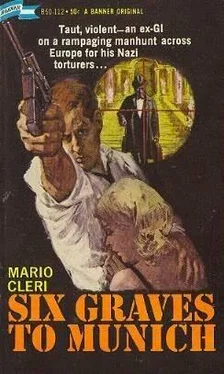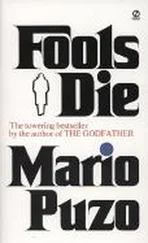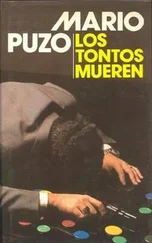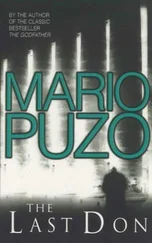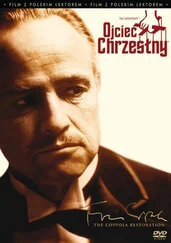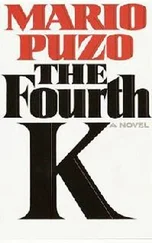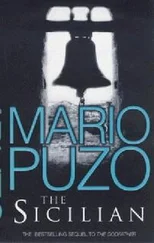The silver plate in his skull began to ache, and the hatred for the whole world that soured his blood drained the strength from his body and he started to slump toward Rosalie. She caught him as he began to black out, and a stout bailiff, seeing what had happened, helped to carry Rogan out of the courtroom and down to the emergency clinic. Rosalie stayed on the side where Rogan had his gun, feeling the shape of it through the cloth of his jacket. In the clinic she made him lie on one of the four beds and put a screen around him. Then she held up his head and pushed the pills down his throat. In a few minutes the color returned to Rogan’s cheeks and he opened his eyes.
She spoke to him softly, but he didn’t answer, and finally she had to leave him there to attend to someone who had come in for minor medical aid.
Rogan stared at the ceiling. He tried to force his brain to think things out. There was no way the Freisling brothers could have been lying when they put down the same names of their wartime colleagues. And Bailey had admitted that it was von Osteen who was the man Rogan sought. Was it possible, then, that Rosalie had lied to him? No. For Rosalie, it was impossible. There was just one thing to do: Find Bailey and make him tell the truth. But only after he had rested; he felt too weak now. Rogan closed his eyes. He slept for a little while. When he woke up he thought he was in one of his familiar nightmares.
From the other side of the screen came the voice of the chief interrogator who had so long ago tortured him and betrayed his humanity. The voice was powerfully magnetic, ringing with sympathy. It was inquiring after the man who had fainted in the courtroom. Rogan could hear Rosalie, her tone respectful, reassuring the visitor that the man had been overcome by the heat and would shortly be well again. She thanked the Honorable Judge for his kindness in asking after the health of her patient.
When the door closed Rosalie came round the screen and found Rogan sitting up in bed. There was a grim smile on his face. “Who was that?” he asked, wanting to make sure.
“Judge von Osteen,” Rosalie said. “He came to ask how you were. I told you what a kind man he was. I always felt he couldn’t be the one you were looking for.”
Rogan said softly, “That’s what the brothers were smiling about, and Bailey too. They knew I would never recognize von Osteen, just as they hadn’t recognized me. But his power was all in his voice, and I’d never forget that.” He saw her look of dismay. “Is Judge von Osteen sitting this afternoon, after lunch?” he asked.
Rosalie sat down on the bed, with her back to him. “Yes.”
Rogan patted her shoulder, his fingers drawing strength from her young body. He could feel the exultant joy running through him. In a few hours it would all be over; he would never dream his terrible dreams again. But he would need all his strength. He told Rosalie what shots to give him from her drug supply in the clinic locker. As she prepared the needle he thought about the change in von Osteen’s appearance.
Remembering von Osteen’s proud features, Rogan knew the man would not have had voluntary facial surgery merely to escape danger. In the years since they had last seen each other von Osteen had gone through his own hell of suffering. But it didn’t matter; nothing mattered anymore, Rogan thought. Before the day was over both their worlds would end.

Superior Federal Judge Klaus von Osteen sat on the high bench, two fellow judges flanking him. He saw the mouth of the prosecuting attorney move, but he could not make any sense out of the words. Haunted by his own guilt, his own fear of punishment, he could not concentrate on the case before him. He would have to agree with the verdict of his two fellow judges.
A flash of movement in the rear of the courtroom caught his eye, and his heart contracted painfully. But it was just a couple taking their seats. He tried to see the man’s face, but the head was bent down and away. Now the defense attorney was listing excuses for his client. Von Osteen tried to focus his attention on what the man was saying. He concentrated. Suddenly there was a commotion in the rear of the courtroom. By a great effort of will von Osteen kept himself from standing up. He saw a woman in white and one of the bailiffs half carry a slumping man out through the doorway. It was not an uncommon occurrence in these courtrooms where people were subjected to such cruel stress.
The incident disturbed him. With a crook of his finger he summoned one of the clerks to the bench and whispered instructions. When the clerk returned and told him that a friend of the nurse employed by the court had fainted and had been taken to the emergency room, von Osteen sighed with released tension. And yet there was something strange about such a thing happening at just this time.
When the court recessed for lunch, von Osteen decided to go down to the emergency room and inquire after the man’s condition. He could have sent a clerk, but he wanted to see for himself.
The nurse was a very pretty girl and fine-mannered. He noted with approval that she was far superior to the usual type employed in such government positions. She motioned to a screen around one of the hospital beds and told him that the man was recovering; it had been a mild fainting spell, nothing serious. Von Osteen stared at the screen. He was almost overcome by the urge to walk behind that screen and look into the man’s face, to resolve all his fears. But such an act would be extraordinary, and besides, the nurse was in his way. She would have to move aside. He said a few words to her with mechanical politeness and left the room. For the first time since he had become a judge in the Munich Palace of Justice he walked through the courtyard, turning his head so that he would not see the interior wall against which the bodies had been stacked on that terrible day long ago. Leaving the courtyard, he walked down the main avenue where his chauffeured limousine waited to take him to his home for lunch.
The detective guard sat in the front with the chauffeur, and von Osteen smiled with amusement. The guard would be almost no protection against a determined assassin, merely another victim. When the car rolled into the driveway of his home he noticed that his house guard had been increased. They would help. It would force the assassin to make his attempt somewhere else, and Marcia would be safe.
His wife was waiting for him in the dining room. The table was set with white napery that had a faint tinge of blue in the curtained light. The silver sparkled, and the bowls of bright flowers were arranged with the skill of an artist. He said jokingly to his wife, “Marcia, I wish the food were as good as the setting.” She made a face of mock displeasure. “Always the judge,” she said.
Looking at his wife, von Osteen thought, Would she believe in my guilt if it all came out? And he knew that if he denied everything she would believe him. She was twenty years his junior, but she truly loved him. Of that he had no doubts. Von Osteen ran his hand over his face. The surgery had been excellent, the best available in Germany, but close up the many scars and seams in his flesh were clearly visible. He wondered if that was why she kept the rooms curtained against too bright a light and the lamps dim.
After lunch she made him lie down on the sitting room sofa for an hour’s rest. She took a seat opposite him, a book in her lap.
Klaus von Osteen closed his eyes. He could never confess to his wife; she believed in him. And after all, he had received his punishment. A few weeks after Rosenmontag , 1945, a shell had fragmented his face. He had always accepted his terrible wound without bitterness, for in his mind it atoned for the crime he had committed against the young American agent in the Munich Palace of Justice.
Читать дальше
